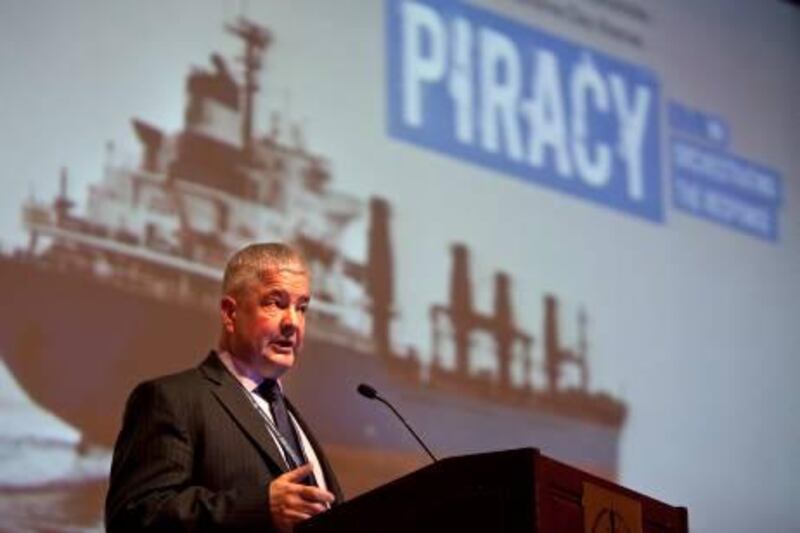ABU DHABI // A legal fog over who should prosecute pirates is leading to suspected offenders being set free or held indefinitely, a maritime security conference has heard.
Countries are detaining an increasing number of pirates but confusion arises over which nation's laws, if any, apply, experts said at the three-day Maritime Security and Surveillance conference, which began yesterday at the Armed Forces Officers Club.
Fifteen pirates captured by the US at the start of this month have yet to find a country whose courts will conduct their trial.
And about 100 pirates captured by India over the past year face indefinite detention until a law is created under which to prosecute them.
The Indian government last year ordered its navy to stop capturing pirates, and instead to confiscate their weapons and let them go.
Other naval forces conducting counter-piracy patrols in high-risk areas, including the Gulf of Aden, Arabian Sea and parts of the Indian Ocean, also follow this practice of "capture and release".
Often they have not caught the pirates in the act and so do not have sufficient grounds to detain them.
"There is no international law against conspiracy to conduct acts of piracy … if they're not caught in the act, then it's actually very difficult to prosecute," said Chris Trelawny, the deputy director of the maritime safety division of the International Maritime Organization, which has about 160 member states.
"So a lot of pirates, their equipment is being taken off them and they are being sent back to Somalia. It's not particularly satisfactory but it's a pragmatic reality."
In other situations, the many nationalities represented on a ship - the flag state to which the ship belongs, and the nationalities of the shipowner and cargo owner - make it difficult to work out whose laws should be followed.
Navies also tend to refrain from action if they cannot guarantee the safety of the crew being held. India halted its aggressive tack towards pirates last year after they began punishing Indian hostages in retaliation.
Last April, seven of 15 Indian seafarers on the UAE-owned MV Asphalt Venture were held in Somalia even after the ship was released, in response to the Indian navy's arrest of pirates. It marked the first time hostages had been held back after a ransom had been paid.
"They harmed them because they were Indian," said Commodore Ranjit Rai, the former director of operations for the Indian navy and the vice president of the Indian Maritime Foundation, which assists relatives of kidnapped seafarers.
The Maritime Security and Surveillance Conference was organised with the support of the Higher Committee for UAE Civil Seaports and Airports Security.
Conference delegates from the UAE, United Kingdom, United States, India and GCC countries convened to discuss ways to maximise coastal security, combat piracy and other crimes at sea, and improve port security.






